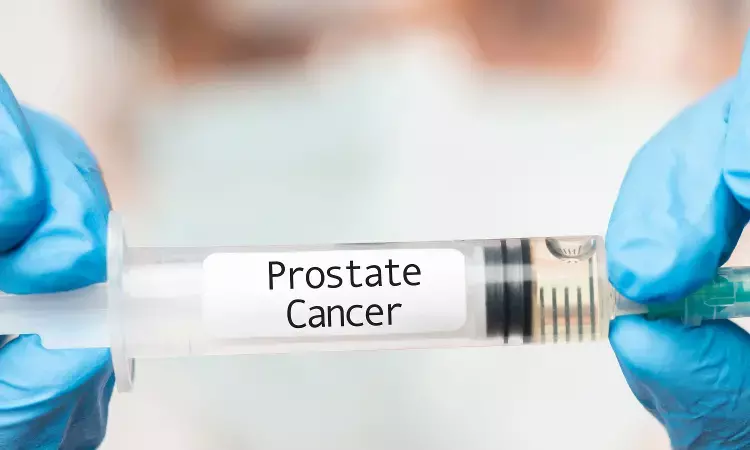- Home
- Medical news & Guidelines
- Anesthesiology
- Cardiology and CTVS
- Critical Care
- Dentistry
- Dermatology
- Diabetes and Endocrinology
- ENT
- Gastroenterology
- Medicine
- Nephrology
- Neurology
- Obstretics-Gynaecology
- Oncology
- Ophthalmology
- Orthopaedics
- Pediatrics-Neonatology
- Psychiatry
- Pulmonology
- Radiology
- Surgery
- Urology
- Laboratory Medicine
- Diet
- Nursing
- Paramedical
- Physiotherapy
- Health news
- Fact Check
- Bone Health Fact Check
- Brain Health Fact Check
- Cancer Related Fact Check
- Child Care Fact Check
- Dental and oral health fact check
- Diabetes and metabolic health fact check
- Diet and Nutrition Fact Check
- Eye and ENT Care Fact Check
- Fitness fact check
- Gut health fact check
- Heart health fact check
- Kidney health fact check
- Medical education fact check
- Men's health fact check
- Respiratory fact check
- Skin and hair care fact check
- Vaccine and Immunization fact check
- Women's health fact check
- AYUSH
- State News
- Andaman and Nicobar Islands
- Andhra Pradesh
- Arunachal Pradesh
- Assam
- Bihar
- Chandigarh
- Chattisgarh
- Dadra and Nagar Haveli
- Daman and Diu
- Delhi
- Goa
- Gujarat
- Haryana
- Himachal Pradesh
- Jammu & Kashmir
- Jharkhand
- Karnataka
- Kerala
- Ladakh
- Lakshadweep
- Madhya Pradesh
- Maharashtra
- Manipur
- Meghalaya
- Mizoram
- Nagaland
- Odisha
- Puducherry
- Punjab
- Rajasthan
- Sikkim
- Tamil Nadu
- Telangana
- Tripura
- Uttar Pradesh
- Uttrakhand
- West Bengal
- Medical Education
- Industry
New combined therapy helps extend lives of men with prostate cancer

Practice-changing research from Cedars-Sinai Cancer shows that a combination of androgen deprivation therapy-a commonly used hormone injection-plus pelvic lymph node radiation, kept nearly 90% of clinical trial patients' prostate cancer at bay for five years. The findings were published in the peer-reviewed journal The Lancet.
The study also shows that patients with prostate cancer who didn't receive androgen deprivation therapy-and who did not receive pelvic lymph node radiation-had a five-year survival of 70%.
"We can now confirm that pelvic lymph node treatment used together with androgen deprivation therapy, or even used as a stand-alone treatment option, greatly improves outcomes in patients with postoperative prostate cancer," said Howard Sandler, MD, chair of the Department of Radiation Oncology at Cedars-Sinai Cancer and senior author of the study. "These findings are an encouraging step forward, both for the medical community and for the patients and their loved ones seeking curative treatment options."
The international, Phase III clinical trial that served as the basis of The Lancet study, enrolled 1,716 patients between March 31, 2008, and March 30, 2015. Enrollees were separated into three groups.
Group one received salvage prostate bed radiotherapy-a standard radiation targeted to the area in which the prostate used to exist before its surgical removal. These patients had a median five-year survival of 71%.
The second group received the standard radiation treatment, in combination with androgen deprivation therapy. They had a median five-year survival of 81%.
The third group received salvage prostate bed radiotherapy, androgen deprivation therapy and pelvic lymph node radiation. These patients had a five-year freedom from progression of just over 87%.
"The combined treatment approach proved to be the most beneficial approach," said Sandler, also the Ronald H. Bloom Family Chair in Cancer Therapeutics and professor of Radiation Oncology at Cedars-Sinai.
Prostate cancer is the most common non-skin cancer in the U.S., affecting 1 in every 6 to 7 men. While there are rarely early warning signs of the disease, there is a robust screening test that can catch the disease in its earliest stages. Diagnosis usually accompanies an elevated level of PSA, an acronym for prostate-specific antigen.
Many men diagnosed with prostate cancer will undergo a prostatectomy-the surgical removal of the prostate. After surgery, a man's PSA level should be near zero. However, some men start to see their PSA levels rise several years after surgery. This is typically an indication that radiation therapy is needed.
Sandler says men with postoperative prostate cancer can have excellent outcomes, especially if radiation is given early-when PSA levels are at their lowest-and in combination with proven therapies, as suggested in this new research.
For more details, check out the following link:
Dr Kamal Kant Kohli-MBBS, DTCD- a chest specialist with more than 30 years of practice and a flair for writing clinical articles, Dr Kamal Kant Kohli joined Medical Dialogues as a Chief Editor of Medical News. Besides writing articles, as an editor, he proofreads and verifies all the medical content published on Medical Dialogues including those coming from journals, studies,medical conferences,guidelines etc. Email: drkohli@medicaldialogues.in. Contact no. 011-43720751


